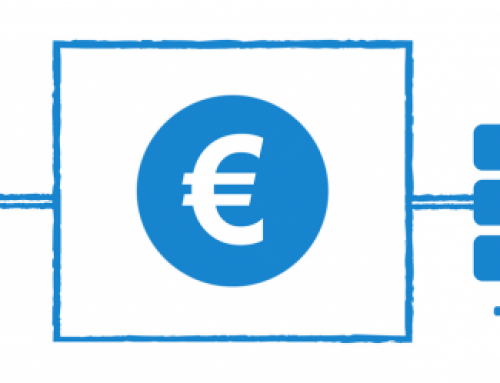I recently attended this year’s edition of TeComm in Cluj-Napoca. For those of you who are not familiar with the name, it’s the largest eCommerce conference in Eastern Europe. Among the many topics covered at the conference, there were also talks regarding payment methods in the eCommerce world. The discussions mostly covered issues regarding consumers’ trust in these methods and how they apply to various niches.
Some Romanian online customers are still reluctant towards mobile payments, and there is indeed a lack of trust in giving away information to vendors and making payments online. Considering this, it might seem pointless to approach a topic like cryptocurrencies as payment methods, but I believe that innovation waits for no man, and blockchain will bring a large shadow over large markets, eCommerce included.
This year, Ecommerce Europe organized the inaugural Global eCommerce Summit in Barcelona, where discussions included topics such as blockchain and cryptocurrencies. That’s no surprise considering that blockchain has plenty of potential in the eCommerce market, through Bitcoin or any of the other 900 or so cryptocurrencies. It can and probably will impact the future of how we shop online and how ecommerce shops do business.
Just look at it this way: online payments were revolutionary when they appeared, and they also presented a great deal of opportunity – that’s how companies like PayPal came to be and many others after it and before it. Digital payments and cryptocurrencies are the new revolution in online payments, a revolution that, in time, will change how users shop online and how eCommerce shops work as a business model.
Still, there are a lot of challenges – regulations, trust, infrastructure, privacy, accessibility and so on – to get to a point where Bitcoin or any other alt-currency can become, for the lack of a better word, a mainstream payment method for eCommerce shops.
But there’s an extra factor in play – stability. Is Bitcoin stable enough to be used as a payment method for online shops? Is any other cryptocurrency stable enough to be used for the same purpose?
Let’s see.
Numbers and current status
A study done recently this year by the Cambridge Centre for Alternative Finance offered some interesting findings related to the state of cryptocurrencies in 2017. If we’re going to talk about cryptocurrencies having an impact in eCommerce, we need to know how many people are actually using them. The ballpark figure so far was around 1 million people, but the CCAF research estimates that between 2.9 million and 5.8 million people are actively using cryptocurrencies today. They have an estimated 5.8 to 11.5 million wallets.
There’s no surprise that 81% of wallet providers are based in North America and Europe, but it is a bit surprising that only 61% of wallet users are based there. Asia is also a huge playground for blockchain technologies and cryptocurrencies and, despite the news regarding regulating them, or more precisely the ban on digital money in mainland China, there’s still an active industry and interest in them.
Bitcoin is the dominant player in the industry, but its lead has been diminishing over the past two years, from 86% market capitalization to 72%. Other major players are Ethereum, Litecoin, Zcash and others.
So how does this relate to eCommerce?
The figures above show that there is an infrastructure, an industry and a very appealing interest in this type of digital payment. The spill over to the eCommerce industry has already happened, since there are large shops that accept cryptocurrencies on an international level, and also a few in Romania: F64, PC Garage and Altshop are Romanian eCommerce stores that accept cryptocurrencies as payment options.
Some might say that they’re just riding the wave of interest in them and that few people might actually use them, but it’s a huge step forward regarding online payments. Despite the huge interest in them, they’re not a “fad”, but a revolutionary way of making payments, that have several advantages over regular online card payments methods.
Cryptocurrencies advantages for online payment
The most common advantage, or the most well-known advantage, is their decentralized nature. That means that there is no central authority or bank that can have control over them. There are also no boundaries or borders that can affect them.
Making payments in other countries can become a hassle with regular currencies. It takes more time and fees are often applied. That’s not to imply crypto payments are cost-free, but they can swiftly move from point A to point B, regardless of location, in just a few seconds.
Think about it like this – online payments are transactions made between two parties. The thing is, when we’re talking about the current online payment systems, there are not just two parties involved.
When you use your card to pay online you start a whole process that eventually ends with the end recipient receiving your money. Basically, you authorize the merchant to get a certain sum from your bank account.
But several parties are involved in this transaction. First there is the merchant, then their IT provider, possibly another third-party processor, the card network itself and also your bank who issues the card. All the players here have access to your account over the course of the transaction. And fraud can happen, especially in international transactions where the list of parties involved grows bigger. Don’t get me wrong, online card payments may have their drawbacks, but present a safe way to go. The only thing is, cryptocurrencies present an even safer way to pay.
How?
Let’s take Bitcoin as an example. Doing a Bitcoin transaction is a very similar transaction to exchanging cash with someone. Basically, just sending someone a sum of money.
It does not need several intermediary parties and does not create a billing cycle. It’s just a simple step where you only have to trust your payment provider. Also, Bitcoins (because of blockchain) can’t be counterfeited or hacked. Every transaction that occurs is listed, and each client possesses a copy of the list. That means that you can’t counterfeit Bitcoins. Double spending is also impossible due to the nature of the blockchain.
That’s Bitcoin. Ethereum on the other hand brings something else to the table in terms of security: smart contracts.
Smart contracts are programmable contracts that do certain actions when certain conditions are met. They can replace a payment provider and offer a safer way to do transactions in eCommerce. They have several advantages compared to regular payment providers:
- You don’t need any third parties
- Easy and fast payments
- Safety – the smart contract keeps all the money until the transaction is complete
- Easy refunds
Despite having certain drawbacks, they remain a viable choice for conducting eCommerce transactions.
Issues
Decentralized cryptocurrencies need legal backing to be able to function and act as legitimate payments. There is strong support for them in many countries, especially in the U.S. and Europe, but not everybody is cozying up to them.
China banned ICO’s and bitcoin exchanges in September this year and, although Bitcoin took a hit upon the news, it bounced back. Also, all the businesses that dealt with cryptocurrencies just moved their server abroad, they didn’t stop altogether. Hong Kong is still an open territory. South Korea also took a similar route and banned ICOs.
There are many challenges in creating regulation for cryptocurrencies and also for moving forward with legislation. Although, Bitcoin at least, has been around for years, there is still a “new” element to it all. The U.S., Japan, Estonia, Canada, Sweden, Germany, U.K. and Finland have officially accepted Bitcoin as a legal mode of payment.
That doesn’t mean that they are the only countries where you can legally use Bitcoin. It’s widely available in many other countries, but, depending on the government, it may qualify as a “coin” or as an “asset”.
Legality aside, there is also the issue of volatility. A currency needs stability in order for it to be used for payments. Bitcoin is the most prominent here, so I’ll use it as an example. It has indeed seen drastic changes. In November 2016, its value was around $700, and now it’s over $7000. For investors, that’s very good news. But, during the past year, it had its ups and downs, not characteristics you want to see in a currency used for online payments.
As the market adjusts, its volatility should decrease and become more stable. When South Korea’s ban went into effect, the market took little notice of the measure, and that’s a step in the right direction.
Conclusions
The whole point here is making it easier for people to shop online; for eCommerce businesses to reach more customers. Cryptocurrencies help achieve this goal, because they have no barriers or borders. I will note that it will take time for more and more people to use cryptocurrencies to this end.
There are quite a few major companies accepting cryptocurrencies payments. The list is long, so I’ll just mention a couple of names: Overstock is the first major retailer that accepted Bitcoin payments, Newegg is an eCommerce website with over 80.000 products that lets you pay with Bitcoin and Subway has a few locations that accept Bitcoin payments. And there are many others.
Some use it as a direct payment method, but most use third party services to accept cryptocurrencies as a payment. It’s pretty easy to integrate a payment extension and, for Magento 2 for example, there are several options, like CoinGate.
I’ll leave you with this – right now, in 2017, you can buy a pizza from Domino’s (using a platform called pizzaforcoins.com) with Bitcoins. How far are we from using it as a general online payment in eCommerce shops worldwide?
Maybe not so far away.
Article written by Samuel Andras




